Immerse yourself in one of the top self drive touring routes in the world - The Wild Atlantic Way and discover the Wild Magnificent Ireland of your dreams!
This Best of the Wild Atlantic Way Tour is accessed through Shannon airport and is a 10 night tour based on the highlights of the spectacular coastal route that is the Wild Atlantic Way. The Wild Atlantic Way driving tour is the longest defined coastal route in the world and stretches for 2500km along Ireland’s western seaboard. Along Ireland’s ‘Wild Atlantic Way’ where the Gaelic culture thrives and much of the population still speaks Irish as its first language, it is the people that might distract you from the wonderful sights to be seen. These warm-hearted and friendly communities that dot the landscape will welcome you with open arms and regale you with stories and the history of their areas.
By day enjoy the magnificent scenery including, the Cliffs of Moher, Aran Islands, Killary Harbour and the stark Burren Landscape of County Clare as well as the Dingle Peninsula in Kerry. By night rest your weary bones by a roaring turf fire, accompanied by superb traditional Irish music in one of a myriad of welcoming pubs that dot the Wild Atlantic Way.
This tour includes a night in Galway city which although a world away from the small coastal villages you have visited, is the perfect way to end your tour. Galway is the only large city where you can hear Irish spoken on the streets and is a vibrant city known for its selection of eclectic shops, pubs and restaurants.
What's included
Tour Highlights
See ItineraryOvernights for this tour
Accommodation Options
Rest easy - handpicked stays for your style and budget
Tour itinerary
Day 1 - Shannon to Kinsale

Travel to Kinsale via Limerick City, Blarney and Cork City. Among the most interesting attractions in Limerick are King John’s Castle and The Hunt Museum. From there, the direct route to the small coastal town of Kinsale will allow you to ‘Kiss the Blarney Stone’ at Blarney Castle and visit the Cobh Heritage centre near Cork. Cobh, situated on one of the world’s largest natural harbours, was the last port of call for the ill-fated Titanic in 1912 and was the closest port to the site of the sinking of the Lusitania in 1915. The Heritage centre also recounts the story of those Irish who left Ireland during ‘The Famine’. An optional detour includes visits to ‘The Rock of Cashel’ and ‘Cahir Castle’, both in Tipperary and both are amongst Ireland’s premiere historic attractions. Kinsale is a delightful harbour town that has retained its old world charm and has a myriad of old Irish pubs and excellent restaurants as well history laden attractions such as the Desmond Castle Museum and the star shaped ‘Charles Fort’ from the 17th century.
Day 2 - While in Kinsale

Kinsale prides itself to be the gourmet capital of Ireland, boasting abundant superb restaurants and atmospheric traditional pubs. A great deal of your vacation time could indeed be spent in Kinsale itself but if you wish to venture out further afield, your Irish Tourism tailor-made itinerary will help you do just that! If you did not have a chance to visit the following of Kinsale's major attractions, make sure to include them today. Desmond Castle and the International Museum of Wine, which was built in about 1500, had many uses. In 1600 and 1601 it was used as an arsenal by Don Juan Aguilla during the Spanish occupation of the town which lasted for 100 days prior to the Battle of Kinsale in 1601. In the 17th century the castle became popularly known as the "French prison" and was used for prisoners of war, most of whom were captured at sea. During the American war of Independence, the crews of many American vessels were held prisoner in Kinsale in poor conditions. Other notable attractions include Charles Fort, the 17th Century star-shaped fort. St. Multose Church is well worth a visit and was built in 1190. The Courthouse and Regional Museum in was used for ceremonial occasions in the 18th century. In 1915, the Courthouse was used for the inquest into the sinking of the Lusitania. The Regional Museum is now housed in the Courthouse
Day 3 - Kinsale to Kenmare

Today you have visits to Mizen Head, the southernmost point in Ireland, as well as Bantry House and Gardens and the French Armada Centre, also in Bantry. Just north of Bantry you will find Garinish Island. A short boat trip from Glengarriff brings you to the island – look out for seals basking on the nearby rocks – to see the beautiful Italian style gardens that are home to numerous rare and sub-tropical plants. Travel to Castletownbere, one of the largest white fishing ports in Ireland. Situated on Berehaven Harbour and looking out towards Bere Island, the town has a spectacular background of the Slieve Miskish Mountains. Return to Kenmare via the stunning Healy Pass across the Caha Mountains that divide Cork from Kerry. After the mountain pass, you come to the town of Kenmare. The town was founded in 1670 by Sir William Petty and has a history of lace making, demonstrations of which can be seen at the town’s Heritage Centre.
Day 4 - Kenmare to Dingle

From Kenmare, you will be heading to the quaint town of Dingle in County Kerry. You will be travelling there via the stunning mountain route via Molls Gap and Ladies View, as you descend towards the Lakes of Killarney. You will have time to visit Muckross House and Gardens in Killarney before continuing on to Dingle. Muckross House is a wonderful Victorian manor built in 1843 for Henry Arthur Herbert. The location of the House is impressive, close to the eastern shore of Muckross Lake and set below the impressive backdrop of the Torc and Mangerton Mountains. You will also pass though the small village of Annascaul which is the birth place of Tom Crean, a local hero who accompanied Scott and Shackleton on three Antarctic expeditions, including Scott’s doomed attempt to reach the South Pole. On his return to Annascaul Crean opened the "South Pole Inn", which is still in business today. Dingle retains the charm of a fishing village despite being a popular tourist destination
Day 5 - The Dingle Peninsula

From Dingle head to the harbour village of Ventry, in which the ancient tale of the Battle of Ventry Strand is based. The tale as told in a 15th century manuscript describes how Daire Donn, King of the World, landed at Ventry in an attempt to invade Ireland and was defeated on the beachhead by Fionn Mac Cumhaill. You will also see Dunbeg Fort and the Blasket Islands just off the coast. Further along the coast road will bring you to the remains of Ferriter Castle and Dun An Oir. Here in 1580, after three days siege, over 600 Irish and Spanish soldiers surrendered to Lord Grey only to be massacred by his troops. Nearby is the Gallarus Oratory, one of the best preserved early Christian church buildings in Ireland. Back to Dingle for the evening. Here you will find among other great pubs and restaurants, Dick Macks, possibly Dingle’s most famous pub, which is half a leather shop and half a pub so you can buy a pint and a purse at the same time! Foxy John’s is a hardware store and pub combined – an unusual arrangement to say the least.
Day 6 - Dingle to Clare

After an early breakfast depart Dingle in the direction of Brandon to drive over the renowned Conor Pass, Ireland’s highest mountain pass. At the summit Brandon and Tralee Bays can be seen to the north, with the sandy Castlegregory peninsula separating them and to the south lies Dingle Bay. Continue to Tralee and Tarbert where you will take a ferry crossing on the Shannon Estuary to County Clare. Continue north to the Cliffs of Moher. The majestic Cliffs of Moher are without doubt one of Ireland’s most spectacular sights and overlook the Atlantic Ocean on the coast of West Clare. You then arrive at the village of Doolin. Doolin is world-famous for its wealth of Irish folk music and in recent years has been attracting crowds to spontaneous sessions in any one of its excellent pubs. Just north of the Cliffs you then have the lunar like Burren region and the ancient Poulnabrone Dolmen Tombs as well as the Aillwee Caves.
Day 7 - Clare to Connemara

Today we travel to the University City of Galway and on to the Connemara region west of Galway. Also on route, you will have a chance to visit Dunguaire Castle which was built in 1520 by the O'Hynes clan on the picturesque shores of Galway Bay. You will also have the chance to stop in Galway, the ‘City of the Tribes’ is also known as Ireland’s Cultural and festival capital. Other sites in Galway include Ireland’s largest medieval parish church, the Collegiate Church of St Nicholas of Myra dating back to 1320. Christopher Columbus reputedly worshipped in this church in 1477. Also nearby are Galway Cathedral, the Spanish Arch and Eyre Square. Continue west of Galway to the hauntingly beautiful Connemara Region. Situated on the most western seaboard of Europe, this unspoilt region boasts breathtaking scenery. The characteristic features of Connemara include its rugged, unpolluted coastline, dramatic mountains, numerous lakes and rivers and woodlands and the renowned Connemara National Park. Visit Kylemore Abbey and the Lough Inagh Valley as well as the spectacular Sky Road near the town of Clifden. You can also visit the fishing village of Roundstone and see how a ‘Bodhran’ (traditional Irish Drum) is made.
Day 8 - Connemara to Westport

Touring north from Connemara, you will also be able to walk along the fjord at Killary harbour or indeed take the catamaran cruise through Ireland's only fjord. From there travel just south of Westport to see Croagh Patrick, otherwise known as Ireland's 'Holy Mountain' upon which St. Patrick (according to Irish folklore) spent 40 days fasting. The area around Croagh Patrick is rich in archaeological remains which provide an interesting insight into life in times past. Findings date back to 200 B.C. You may also wish to visit Westport House - Designed by the famous architects Richard Cassels and James Wyatt in the 18th century, Westport House is located west of the Shannon and is one of Irelands’ most historic homes open to the public.
Day 9 - While in Westport

Just north of the town of Westport in the county of Mayo is Ireland’s least populated region where you can walk the open countryside for miles with no company other than the local sheep. The amazing geology, archaeology, botany and wildlife of this region of North Mayo is interpreted for us at The Céide Fields Visitors' Centre with the aid of an audio-visual presentation and exhibitions. Achill Island and the Currane Peninsula, on the west coast of Co Mayo, are among the most remote and scenic areas in Ireland. You can also travel north to Castlebar, home to the Museum of Country life, an open-plan building houses collections of domestic goods, once used as part of daily life from 1850 to 1950. Exhibits and a movie explain how Irish people made a living from the soil before the machine age. Further north, you may wish to travel to Sligo and view the Ancient Tombs of Carrowmore. There are over 60 tombs here that have been located by archaeologists to date, dating back to nearly 5,000 B.C. and centuries older than the Pyramids of Egypt. Also in Sligo is Drumcliff Churchyard, perhaps the most visited graveyard in Ireland. William Butler Yeats is buried here under the epitaph that he penned, “Cast a Cold Eye on Life, on Death. Horsemen, pass by!”. The Churchyard stands in the shadow of the magnificent Benbulben and here you will find a visitor centre, crafts shop and coffee shop.
Day 10 - Westport to Galway

From Westport, you may wish to visit the Village of Cong on route to Galway. The famous movie, ‘The Quiet Man’ starring John Wayne and Maureen O’Hara was filmed in this location. Here you can visit locations from The Quiet Man film such as the dying man's house, Innisfree, Castletown, the river fight scene, 'hats in the air' scene, Rev. Playfairs house, Pat Cohan's Bar and many more. Another slight detour of note on this route is the village of Knock. It is a major Roman Catholic pilgrimage site and it is claimed there was an apparition of the Blessed Virgin Mary in 1879.Galway City, the ‘City of the Tribes’ also known as Ireland’s Cultural and festival capital. Galway and in particular, the Quays area of the city centre will enthrall you particularly in the evening time. Other sites in Galway include Ireland’s largest medieval parish church, the Collegiate Church of St Nicholas of Myra dating back to 1320. Christopher Columbus reputedly worshipped. The quay’s area of Galway City is the ideal place to spend your final evening as you will find some of the best traditional entertainment in the country in some of the finest pubs in Ireland
Route map


Tour attractions
Tour Prices
Below, you will find a price for this self drive tour including your car rental. Pricing for other accommodation and transport options is also available upon request. Please also note that all of our driving tours itineraries and sightseeing guides are available to those wishing to avail of one of our experienced driver guides.
ACCOMMODATION WITH CAR RENTAL PRICING
| Accommodation Type | B&B's | 3* Hotels | 4*Hotels & Manor Houses | Combination |
|---|---|---|---|---|
| Jan-Mar & Nov-Dec | €1,256 | €1,404 | €1,883 | €1,455 |
| April & October | €1,256 | €1,577 | €2,015 | €1,632 |
| May-June | €1,400 | €2,540 | €2,540 | €2,025 |
| July -September | €1,572 | €2,713 | €2,713 | €2,198 |
Notes
- Please note prices are per person based on 2 persons in each room with full Irish breakfast and taxes included.
- The Combination package includes 4 Nights in 3*Hotels, 3 nights in Luxury Manor House Hotels & 3 Nights in our hand-picked B&B's.
- Children Sharing with 2 adults (aged 2-11) pay 40% of the Adult option.
- Children under the age of 2 are free when sharing with 2 Adults.
- Your Accommodation & Car Rental Package rate includes an Economy class car eg., Opel Corsa or Fiat Punto.
- Included with your car is all compulsory insurances - Collision Damage Waiver insurance (CDW with an excess/deductible), theft protection insurance, location fee of €30, Road fund tax, sales tax at 13.5%, unlimited free mileage, third party liability insurance, 24 hour peace of mind break down cover.
Private Chauffeur Option Available For This Tour
- Enjoy the services of an experienced and friendly driver guide
- Luxury vehicles so you get to travel in style and comfort
- Take the stress out of driving on unfamiliar and sometime narrow roads
- With our knowledgeable drivers you see more in less time
- You get to see the scenery instead of worrying about crashing into it!
- Contact Us for a price quotation today
Prices in other currencies are indicative only. Please note that we charge in Euro.

Detailed Enquiry Form
Please enter your vacation requirements in the form below. If your enquiry requires a more immediate response, please use the Tollfree & International numbers as listed down the page.
For customers based in North America, please note that as we are based in Ireland, we are 5 hours ahead of EST.































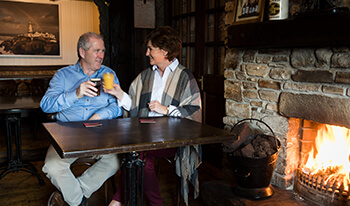
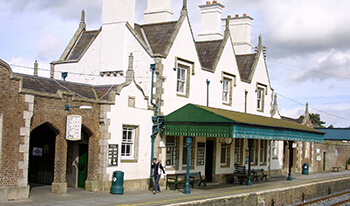
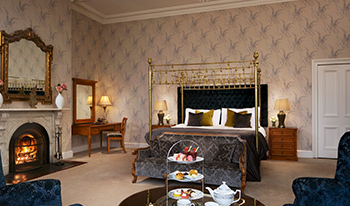
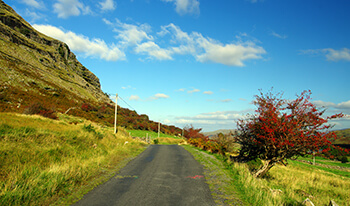
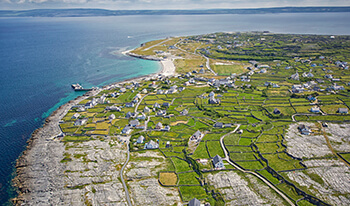
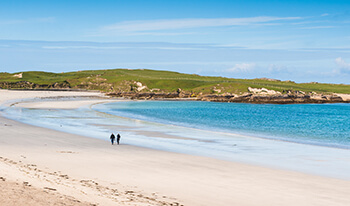




-V3.png)

